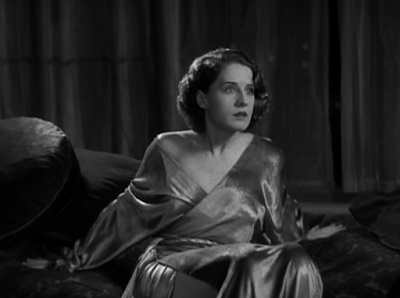I bought a copy of The War of the Worlds (1953, directed by Byron Haskins) during a recent Criterion Collection sale. When my long-suffering partner saw it in my stack of loot, she said: "You'll be watching that one on your own." The ticking of the Martian war machines gives her nightmares. When I popped it into the player at home, that ominous ticking was the soundtrack for the menu screens. She threw up her hands and walked out of the room after ostentatiously slamming the door to drown out that sound. It's a fair reaction, particularly if you first encountered the film at a young age. It still resonates. Once you've heard it, you never forget it.
"The fool, the meddling idiot! As though her ape's brain
could contain the secrets of the Krell!"
Made by a human being. AI is the death of culture.
Pages
Friday, May 27, 2022
Sunday, May 15, 2022
Free Falling
There is an unspoken assumption among some connoisseurs of American pre-Code cinema that the shocking freedom these films enjoyed was somehow linked to a progressive attitude toward social mores. The willingness of filmmakers and studios to take on such "forbidden" subjects as drug addiction, abortion, sexually liberated women, racial issues, and what have you might suggest that the filmmakers and the studios were in the forefront of social and moral progress. This is a mistaken assumption. While it is true that the Hays Code absolutely was a mechanism for conservative social engineering, that doesn't mean that every film that flouted it was on board with an opposing viewpoint. Sometimes, filmmakers used their freedom to demonize that very freedom. No one could have accused a filmmaker like, say Cecil B. DeMille of being socially liberal, and it was one of his films that more or less brought about the end of the pre-Code era. Films like Female, Baby Face, Call Her Savage, or Torch Singer were all retrograde critiques of the sexual liberation of women hiding behind their sexual frankness and racy imagery, with many of their "liberated" heroines repenting and eventually settling for their more "natural" roles as wives or mothers. While this narrative was often played ironically with its fingers crossed behind its back, sometimes it was in deadly earnest. One such deadly earnest version is found in A Free Soul from MGM in 1931, directed by Clarence Brown. It's a film whose only brush with irony is its title. No one in the film is free and that's the way the filmmakers like it.

